Materials Ranked by Durability
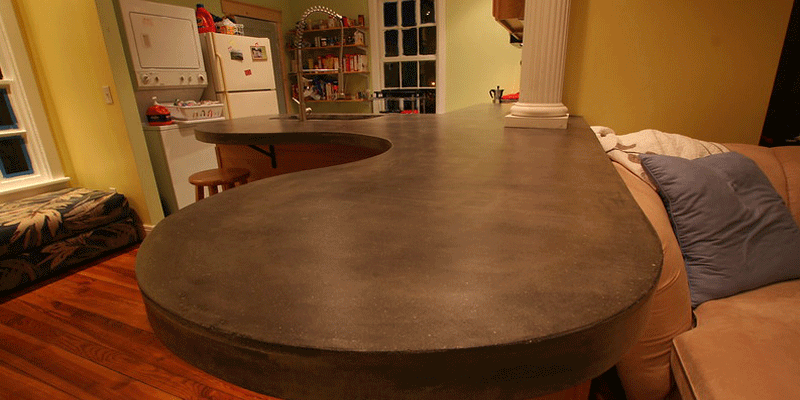
The kitchen countertop is a popular location for remodeling projects. The added space makes a functional and attractive addition to the room. While the choice of countertop materials once was limited to granite or marble, today’s homeowners can choose from many options that range from traditional stone to engineered materials designed for easy installation and maintenance. Although some types of countertops are more durable than others, all countertops require some care to maintain their beauty.
As part of a remodeling project or for an entirely new kitchen design, homeowners search for the best material for kitchen countertops that blends function with style and matches the existing decor. The most common choices include granite, marble, solid surface materials, engineered stone, and laminate. The cost of the countertop material depends on the type chosen as well as where it is purchased.
Durability is one factor used to compare different materials for kitchen countertops. Durability can be viewed in two ways: how long the countertop lasts before showing signs of wear or becoming unusable; and how well it stands up to damage or breakage.
Kitchen countertop materials ranked by their overall durability include:
1. Granite
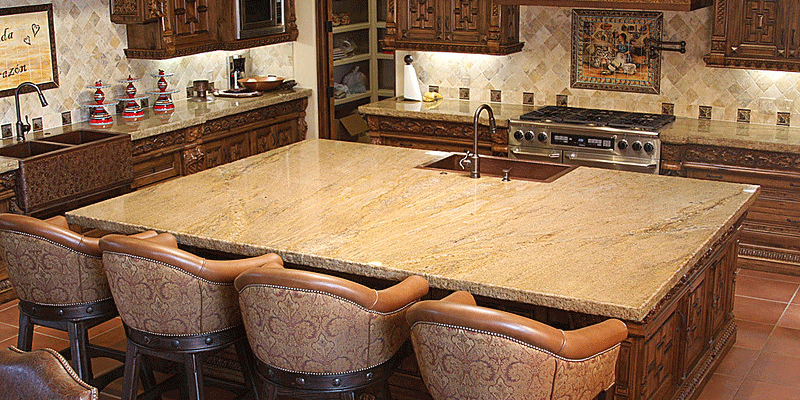
Granite countertops are one of the most durable and long-lasting kitchen countertop materials on the market. They can last for decades with very little maintenance required to keep them looking good. Most granite used for countertops is sealed during factory production to provide high resistance to stains and spills, but occasionally resealing is necessary.
2. Marble
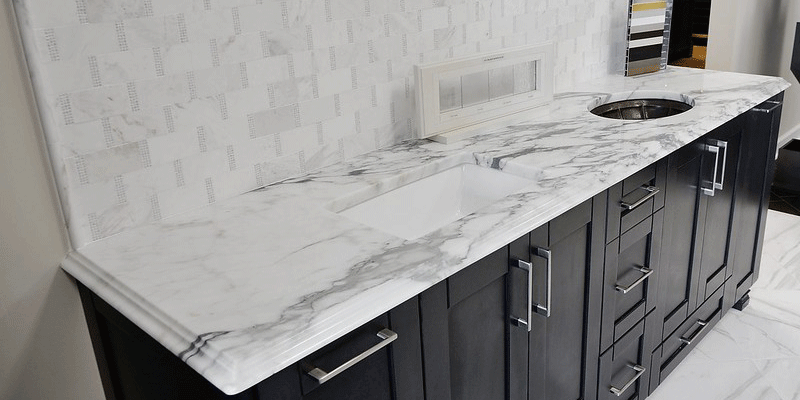
While marble is a lovely and extremely durable kitchen countertop material, it does require routine cleaning and sealing to keep it looking its best. Many homeowners find the high level of maintenance needed to be unattractive to the point where they prefer not to use it for their countertops. The durability of marble typically depends on the quality of the stone.
3. Solid Surface Materials
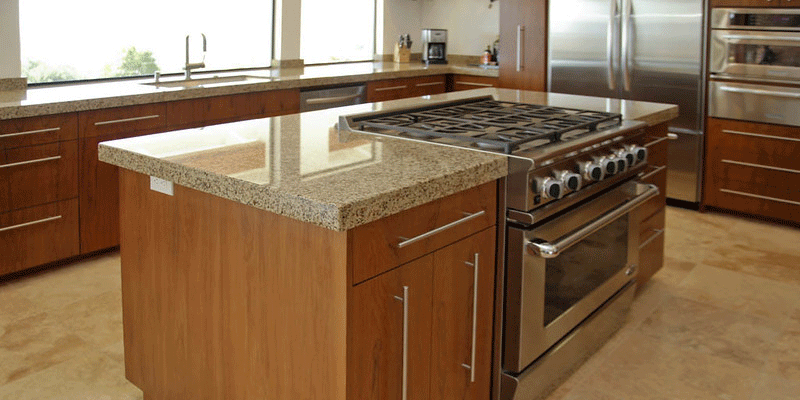
Solid surface materials, such as Corian and Wilsonart, are a good choice for kitchen countertops because they can be produced in a wide range of colors and patterns to blend with any decor. While solid surface materials do not have the same high durability as natural stone, they require less maintenance and usually look good without refinishing.
4. Engineered Stone
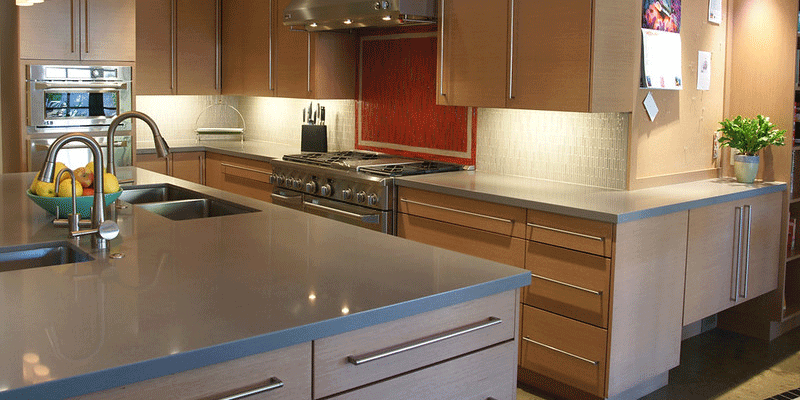
Engineered stone is a mixture of natural stone and resins that create an attractive and highly durable countertop material that can be used for kitchen countertops or bathroom vanities. Because the materials are mixed before they are pressed into sheets, they can be produced to look like traditional stone with a varied pattern. Engineered stone is usually sealed during factory production for added resistance to stains and spills.
5. Laminate
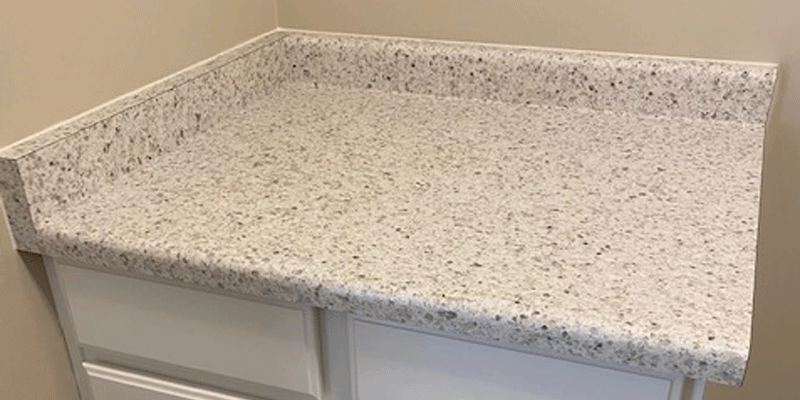
Laminate kitchen countertops, also known as Formica or melamine, are affordable and available in many colors and patterns. Laminate countertops are reasonably durable and can be produced to look like more expensive materials, but they scratch easily, and stains may not be entirely removed. Laminate countertops usually wear down over time due to normal wear and can peel or bubble if exposed to high heat or extreme humidity.
6. Tile
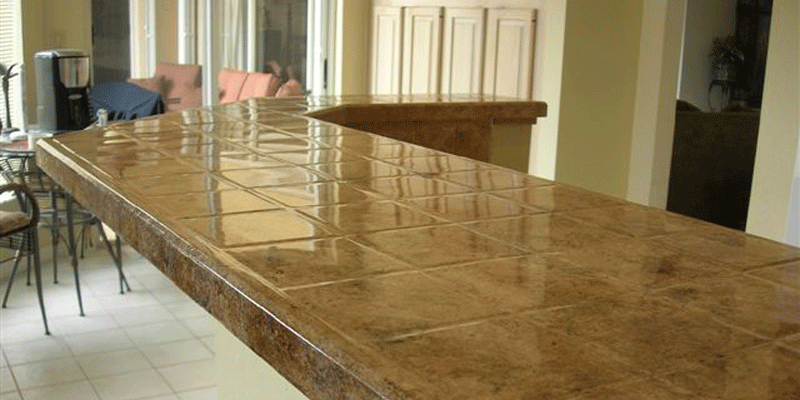
Tile countertops are made from common materials such as marble, porcelain, and ceramic. Tile is inherently more durable than laminate because it is usually made with thicker natural stone or clay pieces. However, tile can be damaged by high heat or extreme humidity that causes the grout to crack.
Factors to Consider when Choosing New Countertop Material
The most important factors to consider when choosing a new material for kitchen countertops include:
- 1. Budget – How much money do you want to spend on the project? Will the cost of the countertop material affect your decision?
- 2. Style – What is your overall style? Does the countertop material you’re considering match the overall style of your kitchen?
- 3. Maintenance – How much time and effort do you want to put into maintaining the countertops? Is durability a factor in making your decision, or will you be happy with a material that requires less maintenance but gives up some sturdiness?
- 4. Colors and Patterns – What colors and patterns are available for the material you’re considering? Do the options you have match your overall style?
- 5. Features – Does the countertop material offer unique features such as a non-skid surface or protective coating? Are these features important to you?
- 6. Health and Safety – Does the countertop material contain harmful chemicals such as formaldehyde? Will you need to wear gloves while cleaning it?
- 7. Environmental Impact – Are you concerned about the environmental impact of your new kitchen countertops? What types of materials can be recycled or repurposed after they are no longer useful for countertops?
- 8. Other Factors – Are there other factors that should be considered? For example, the height of your cabinets may affect the countertop material you choose because thicker materials will not fit underneath the cabinets without modification.
Final Thoughts
Selecting the best kitchen countertop materials can be challenging, mainly because there are so many options available. Before you make a final decision, consider your needs and preferences carefully to choose a material that will enhance the overall look of your kitchen for years to come.
